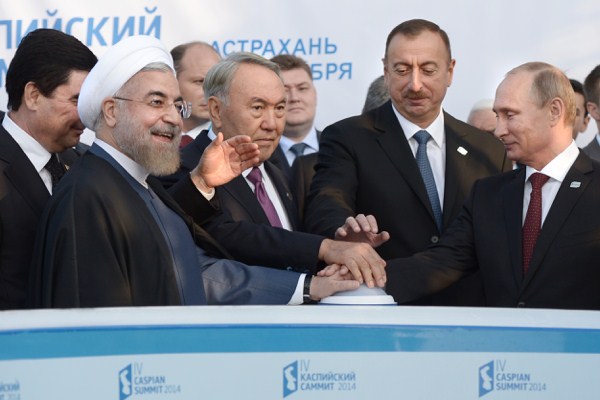As negotiations between Iran and the P5+1 countries—the U.S., France, U.K., Germany, Russia and China—over Tehran’s nuclear program enter the home stretch before their June 30 deadline, much of the attention in Washington and the media has been focused on the U.S. need to reaffirm its commitment to its Persian Gulf allies, in order to reassure them that an Iran nuclear deal would not compromise their security. In addition, however, the United States also needs to develop a strategy for managing the likely growth of Iranian influence in Central Asia and the South Caucasus that would follow any nuclear agreement.
To be sure, the countries of Central Asia and the South Caucasus are more enthusiastic than the Gulf states about the possible advantages of a reconciliation between Iran and the West. Iran’s northern neighbors have publicly welcomed the prospects of an Iranian nuclear deal. They generally support the U.S. goal of preventing Iran from developing nuclear weapons without the use of force, as they fear they would suffer disastrously from any major war involving Iran due to resulting refugee flows, disrupted economic ties and other adverse consequences. Meanwhile, a genuine reconciliation between Iran and the West that resulted in the comprehensive relaxation of sanctions would allow them to trade and invest more with Iran, a logical economic partner, as well as use Iranian territory to transship goods into and out of Iran’s Persian Gulf ports.
South Caucasus and Central Asian leaders have likewise shown less concern than some Persian Gulf governments that a nuclear deal will see the United States and Iran set aside decades of hostility and forge a new alignment at the expense of traditional U.S. allies and partners. However, they do worry that the United States is so eager to reach a nuclear deal with Iran that Washington will neglect their interests and concerns. Azerbaijan, for example, worries about Iranian retaliation for the years that Baku vigorously enforced international sanctions against Tehran.

